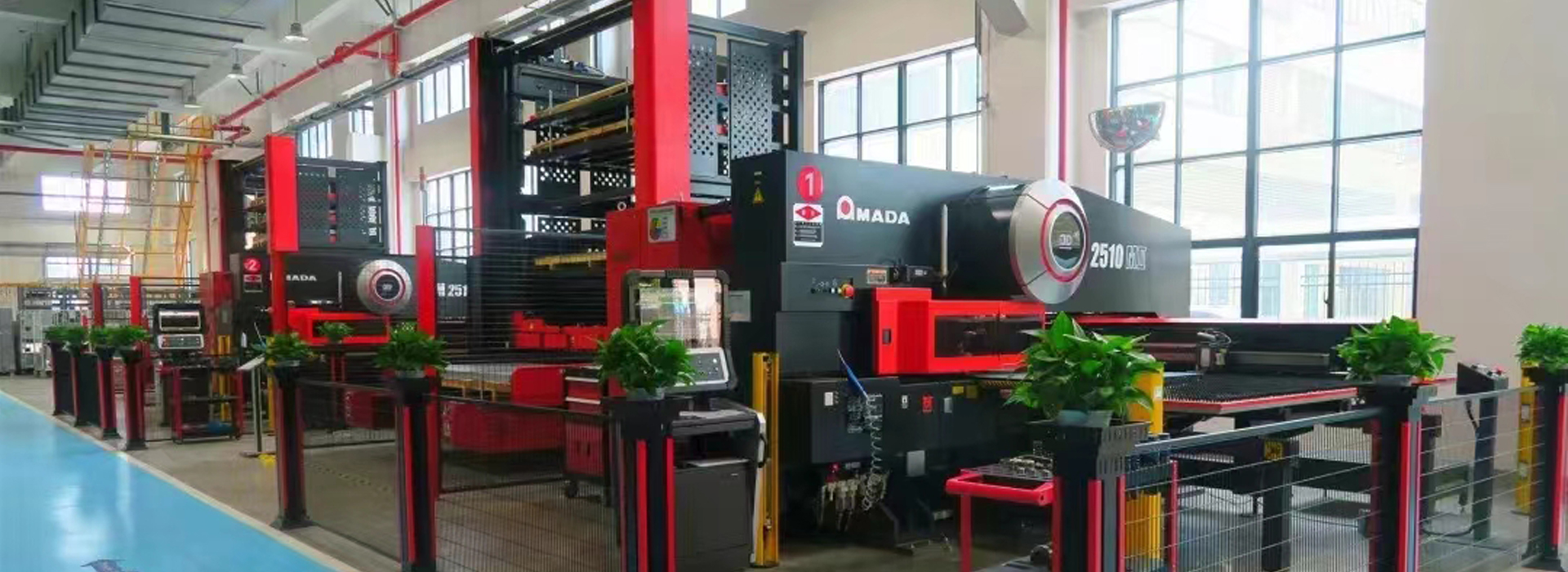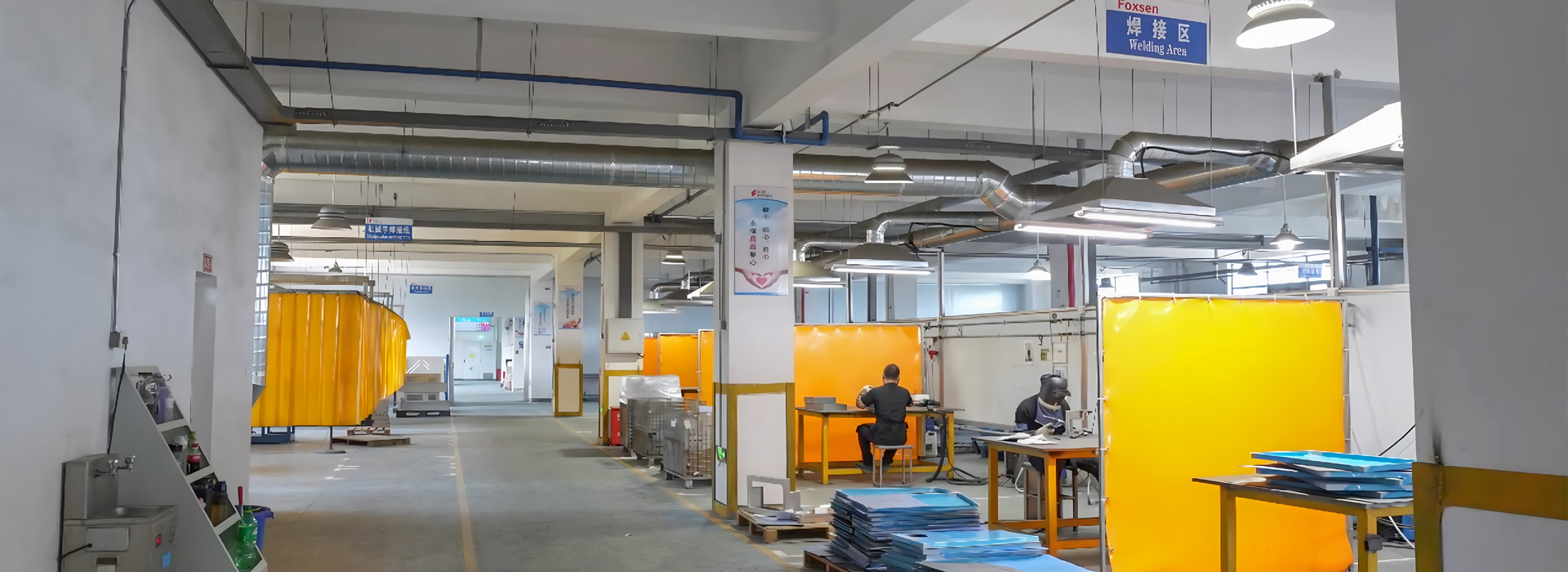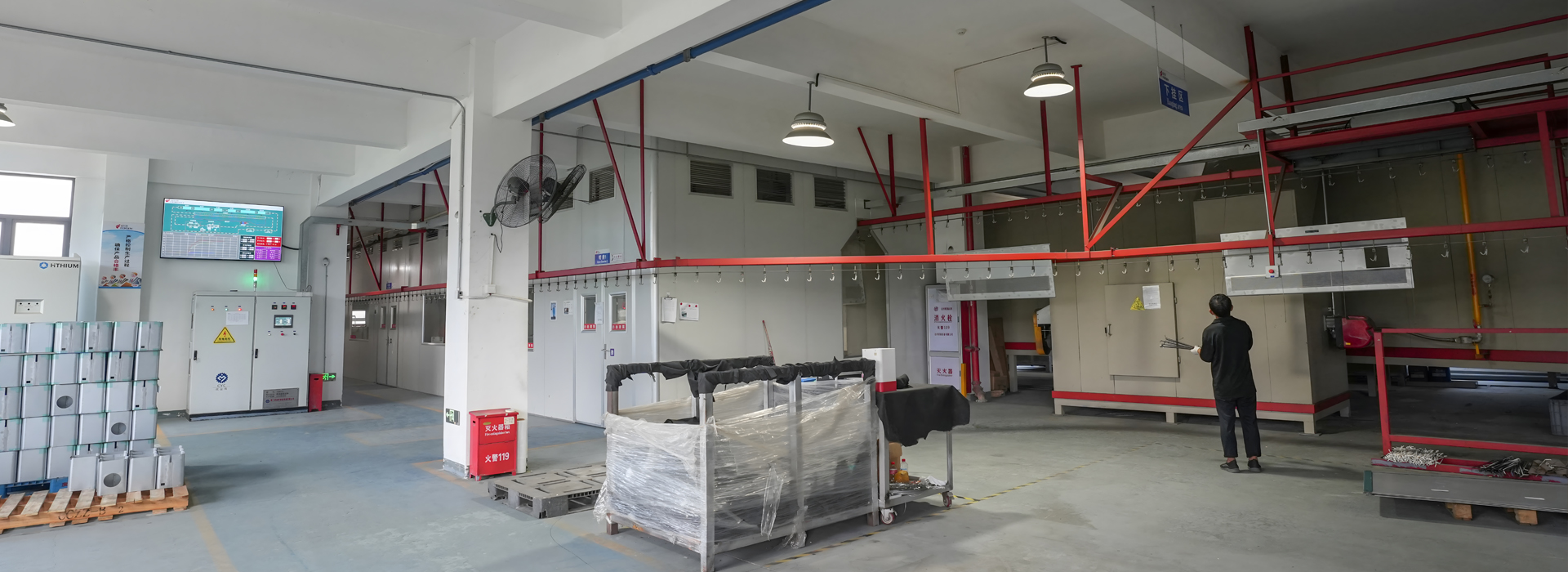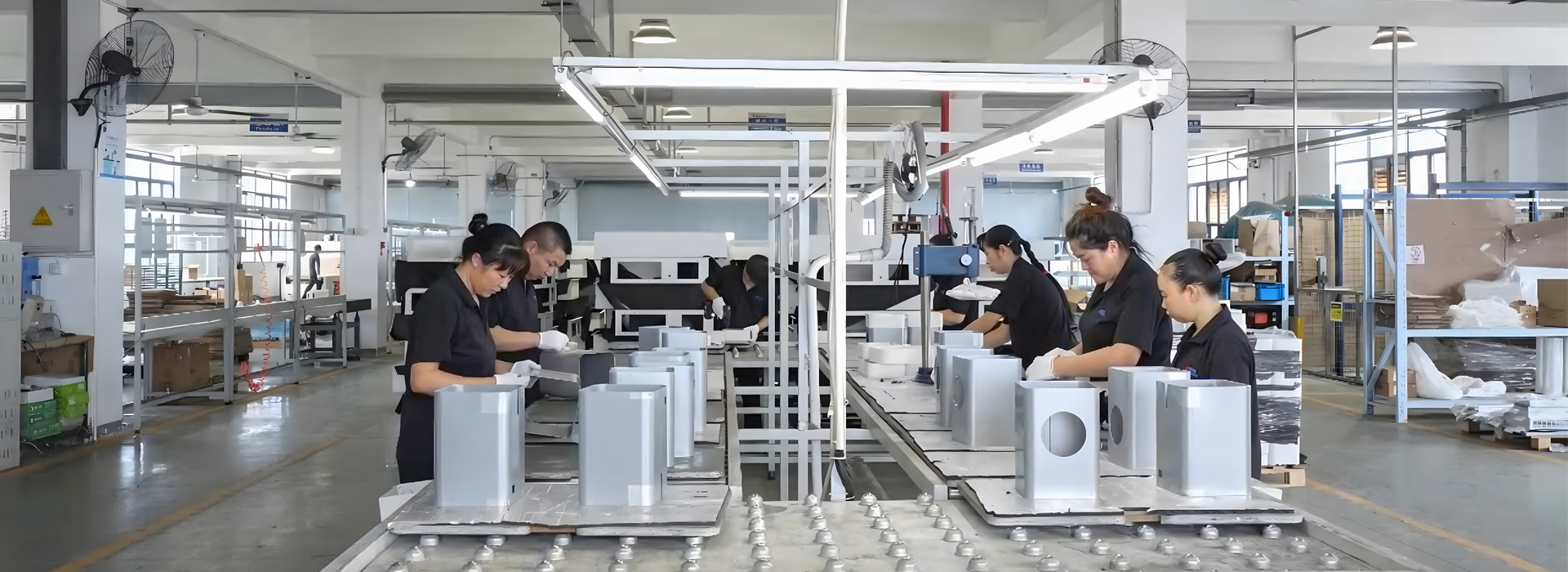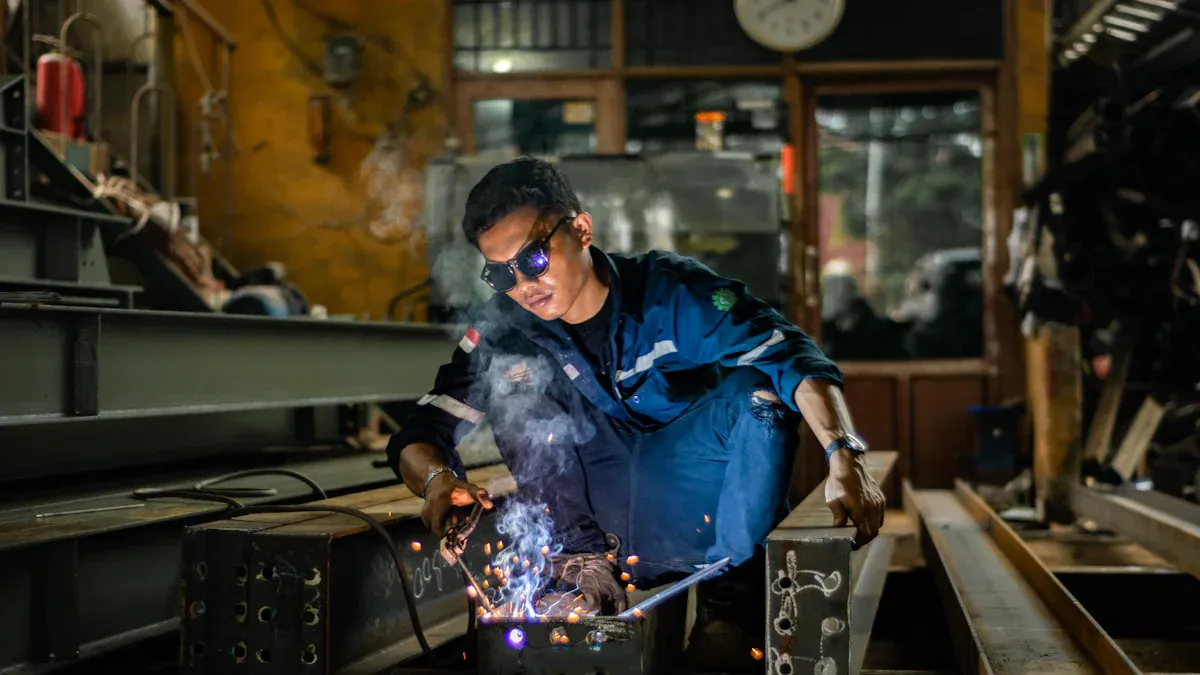Imagine a world where sensitive electronics and machinery operate without reliable shielding. A sheet metal Aluminium Enclosure steps in as the ultimate guardian, offering unmatched protection for components in demanding environments. These enclosures, crafted from durable aluminum sheets, shield devices from physical damage, moisture, and electromagnetic interference.
Industries rely heavily on the sheet metal Aluminium Enclosure to ensure uninterrupted functionality. For instance, the global aluminum sheet market is projected to reach $244.2 billion in 2024, driven by increasing demand in automotive and electrical sectors. The electrical enclosures segment alone is valued at $1.2 billion, showcasing the critical role of these enclosures in renewable energy and automation technologies.
Whether you're safeguarding telecommunications equipment or industrial machinery, a sheet metal Aluminium Enclosure promises durability, lightweight construction, and enhanced thermal management. Their growing popularity across sectors highlights their indispensable value in modern applications.
Key Takeaways
Aluminum enclosures made from sheet metal protect electronics from harm.
They keep out water, dust, and prevent physical damage.
Aluminum is light and strong, making it great for many uses.
It is used in cars, planes, and green energy to work better.
Aluminum enclosures help stop devices from getting too hot.
This keeps electronics working well and safely for a long time.
Manufacturers can design aluminum enclosures to fit specific needs.
This makes them work best for different jobs and industries.
Using aluminum is eco-friendly because it can be recycled fully.
It helps the planet by being better than other materials.
What Are Sheet Metal Aluminum Enclosures?
Definition and Purpose
A sheet metal aluminum enclosure is more than just a protective casing. It serves as a robust shield for sensitive components, ensuring their safety in challenging environments. These enclosures are crafted from aluminum sheets, a material known for its strength, lightweight nature, and resistance to corrosion. Whether you're dealing with electronics, industrial machinery, or renewable energy systems, these enclosures provide the reliability you need to keep your equipment functioning optimally.
The purpose of aluminum enclosures extends beyond protection. They also enhance performance by managing heat, blocking electromagnetic interference (EMI), and withstanding environmental stress. For instance, industries like automotive and aerospace rely on these enclosures to house critical systems such as communication devices and radar equipment. The table below highlights some key applications of sheet metal aluminum enclosures:
By choosing aluminum enclosures, you ensure that your equipment remains safe, efficient, and durable, even in the harshest conditions.
Key Features of Aluminum in Enclosures
Aluminum stands out as the material of choice for enclosures due to its exceptional properties. Its lightweight nature makes it easy to handle and install, while its strength ensures long-lasting protection. Additionally, aluminum's natural resistance to corrosion makes it ideal for outdoor and industrial applications. This combination of features allows aluminum enclosures to perform reliably in diverse environments.
To further illustrate, aluminum enclosures often meet stringent industry standards, such as NEMA and IEC IP ratings. These standards evaluate an enclosure's ability to resist dust, water, and other environmental factors. The table below outlines some of these standards:
Moreover, aluminum's thermal conductivity helps dissipate heat effectively, preventing overheating in electronic devices. Its durability has been proven through rigorous testing, including impact and vibration assessments. These tests confirm that aluminum enclosures can withstand physical shocks and constant movement, making them suitable for vehicles, machinery, and other demanding applications.
Finally, aluminum's sustainability adds to its appeal. It is 100% recyclable, reducing environmental impact while maintaining its structural integrity. This makes aluminum enclosures not only a practical choice but also an eco-friendly one.
Manufacturing Process of Sheet Metal Aluminum Enclosures
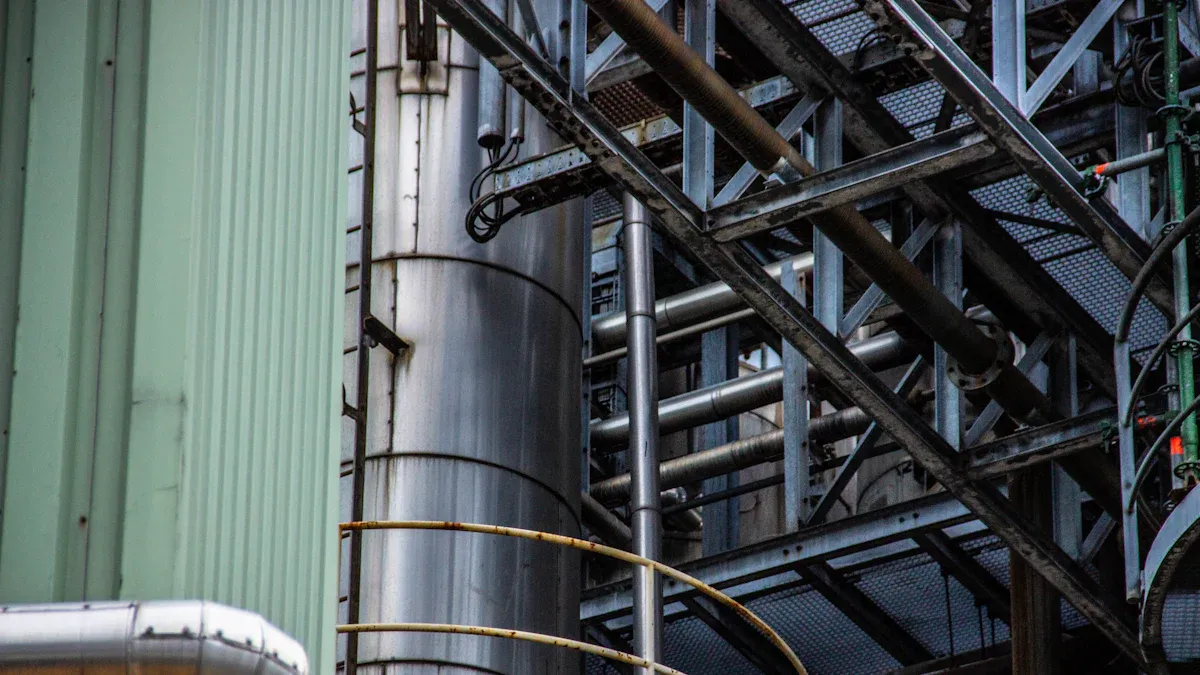
Fabrication Techniques
Creating sheet metal enclosures involves precise fabrication techniques that transform aluminum sheets into functional and durable casings. You’ll find processes like cutting, bending, and forming at the heart of this manufacturing journey. Advanced methods such as laser cutting and plasma cutting ensure clean edges and intricate designs, while press braking shapes the metal into desired angles and curves.
These techniques are versatile, allowing manufacturers to produce everything from simple brackets to complex enclosures for industries like aerospace, automotive, and electronics. For example, forming processes tailored for aluminum alloys address challenges like ductility at room temperature. By leveraging cold, warm, or hot forming methods, manufacturers achieve lightweight yet robust components suitable for demanding applications.
Tip: Opt for enclosures made with precision fabrication techniques to ensure reliability and performance in your projects.
Surface Finishing Options
Surface finishing enhances both the appearance and functionality of aluminum enclosures. You can choose from a variety of finishes based on your specific needs. Anodizing, for instance, provides corrosion resistance and is ideal for electronics and medical devices. Powder coating offers durability and vibrant colors, making it perfect for automotive and outdoor applications.
Here’s a quick comparison of popular surface finishing options:
Selecting the right finish ensures your enclosure meets aesthetic and functional requirements while staying within budget.
Customization Capabilities
Custom aluminum enclosures offer unmatched flexibility to meet your unique requirements. Manufacturers collaborate with precision fabricators to tailor enclosures for specific applications. Whether you need a casing for high-density PCBs or rugged equipment, customization ensures optimal performance.
For example, advanced fabrication techniques address challenges like heat dissipation and protection for sensitive components. In rugged environments, innovative designs ensure enclosures withstand harsh conditions without compromising functionality. Material selection and fabrication processes play a crucial role in achieving these tailored solutions.
Note: Customization allows you to create enclosures that align perfectly with your industry’s demands, whether it’s aerospace, medical, or industrial equipment.
Applications of Sheet Metal Aluminum Enclosures
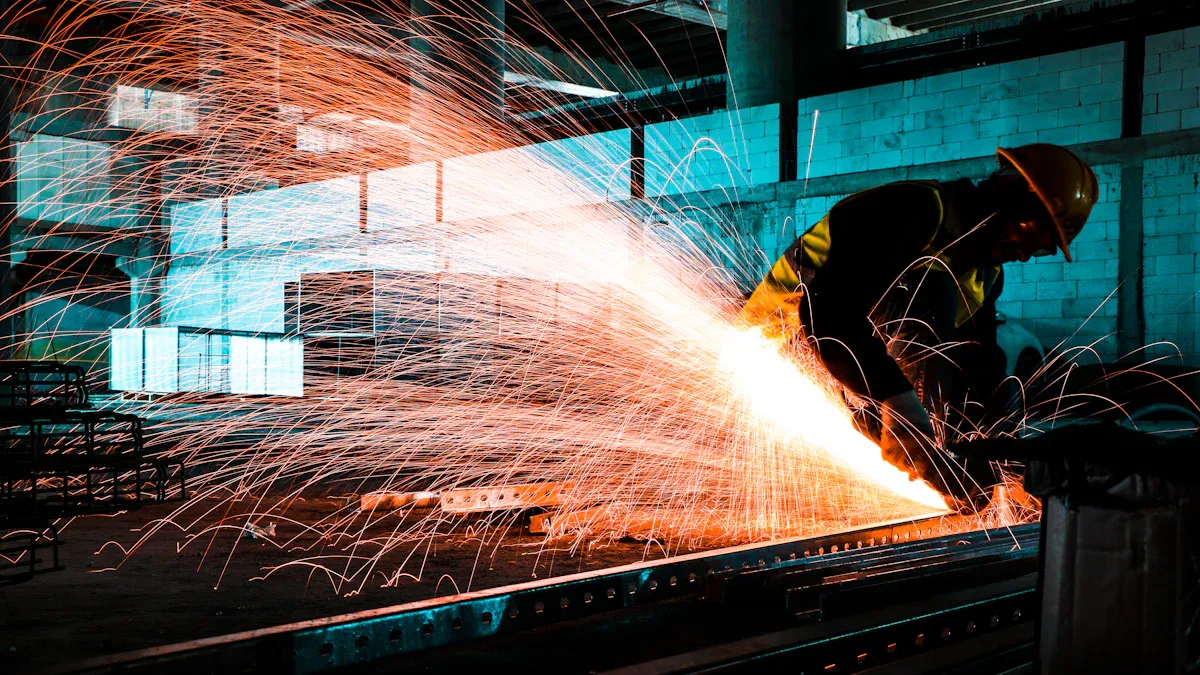
Electronics and Telecommunications
Aluminum enclosures play a vital role in the electronics and telecommunications industries. These enclosures provide unmatched protection for sensitive electronic components, shielding them from dust, moisture, and mechanical impacts. Their lightweight yet durable nature makes them ideal for portable devices and mobile electronics, ensuring that your products remain functional without unnecessary bulk.
Thermal management is another critical advantage. Aluminum enclosures effectively dissipate heat generated by PCBs and high-speed electronics, preventing overheating and potential damage. This feature is especially important for telecommunications equipment, where uninterrupted performance is essential.
Did you know? Aluminum enclosures are widely used in electrical switchboards, routers, and servers to ensure electronic component protection and enhance reliability.
Whether you're designing a compact PCB housing or a large-scale telecommunications cabinet, aluminum enclosures offer the durability and functionality you need to meet industry demands.
Industrial Equipment and Machinery
In industrial environments, aluminum enclosures are indispensable for protecting electrical and electronic components. These enclosures safeguard equipment from harsh conditions, including exposure to dust, moisture, and extreme temperatures. Their corrosion-resistant properties make them a reliable choice for long-term use in demanding settings.
The growing demand for aluminum in industrial applications highlights its importance. The sheet metal processing services market emphasizes the role of aluminum enclosures in sectors like automotive and aerospace. Lightweight and corrosion-resistant, aluminum ensures that industrial machinery operates efficiently and safely.
Additionally, the sheet metal box market underscores the necessity of aluminum enclosures for housing electrical switchboards and industrial electronics. These enclosures not only protect components but also enhance their functionality by providing effective heat dissipation.
By choosing aluminum enclosures for your industrial equipment, you ensure optimal performance and longevity, even in the toughest conditions.
Consumer Products and Appliances
Aluminum enclosures are also widely used in consumer products and appliances. Their lightweight and cost-effective nature makes them ideal for a variety of applications, from home electronics to kitchen appliances. These enclosures provide a sleek and modern appearance while offering robust protection for internal components.
The market for aluminum and copper finished products highlights the growing demand for aluminum enclosures in consumer goods. Electrical equipment and appliances, such as air conditioners and refrigerators, rely on aluminum for its durability and thermal conductivity. This ensures that your products remain efficient and reliable over time.
Tip: If you're designing consumer products, consider aluminum enclosures for their aesthetic appeal and functional benefits. They offer the perfect balance of style and performance.
Whether you're developing a new line of appliances or upgrading existing products, aluminum enclosures provide the versatility and reliability you need to succeed in the competitive consumer market.
Automotive and Aerospace
Aluminum enclosures are revolutionizing the automotive and aerospace industries. Their lightweight and durable properties make them indispensable for housing critical components in vehicles and aircraft. By reducing weight, these enclosures improve fuel efficiency in electric and hybrid vehicles, helping you save on energy costs while contributing to a greener planet.
In aerospace, aluminum enclosures protect avionics and navigation systems from extreme conditions. Their corrosion resistance ensures reliability during high-altitude flights, while their thermal conductivity prevents overheating of sensitive electronics. Whether you're designing a car or an aircraft, aluminum enclosures offer unmatched performance and durability.
Tip: Incorporate aluminum enclosures into your designs to achieve optimal weight reduction and enhanced system protection.
Technological advancements like CAD and automated manufacturing processes have further improved the precision and efficiency of aluminum enclosure production. These innovations ensure that every enclosure meets the stringent demands of automotive and aerospace applications.
By choosing aluminum enclosures, you gain access to cutting-edge technology and materials that elevate your designs to new heights.
Medical and Laboratory Equipment
In medical and laboratory settings, aluminum enclosures play a crucial role in safeguarding sensitive equipment. Their corrosion-resistant properties ensure long-term reliability, even in environments exposed to chemicals and sterilization processes. You can trust these enclosures to protect vital electronics, such as diagnostic machines and laboratory instruments, from damage.
Aluminum enclosures also excel in thermal management, preventing overheating of medical devices like imaging systems and patient monitors. Their lightweight construction makes them easy to handle and install, saving you time and effort during setup.
Note: Aluminum enclosures meet stringent hygiene standards, making them ideal for medical applications where cleanliness is paramount.
Customization options allow you to tailor aluminum enclosures to specific medical and laboratory needs. Whether you require compact housings for portable devices or robust enclosures for large-scale equipment, aluminum offers the flexibility to meet your requirements.
By integrating aluminum enclosures into your medical and laboratory designs, you ensure that your equipment remains functional, reliable, and safe for users.
Advantages of Aluminum Enclosures
Durability and Corrosion Resistance
Aluminum enclosures offer unmatched durability, ensuring long-term protection for your electronics and electrical components. Their natural resistance to corrosion makes them ideal for outdoor applications and harsh industrial environments. Unlike other materials, aluminum withstands exposure to moisture, chemicals, and extreme temperatures without degrading.
This corrosion resistance ensures reliability in demanding conditions, such as housing electrical switchboards in factories or protecting sensitive PCB assemblies in outdoor installations. By choosing aluminum enclosures, you reduce maintenance costs and extend the lifespan of your equipment.
Tip: Opt for aluminum enclosures when durability and corrosion resistance are critical for your projects.
Lightweight and Strength
Aluminum enclosures strike the perfect balance between being lightweight and strong. You can easily transport and install these enclosures without compromising structural integrity. Engineering studies highlight aluminum’s ability to resist tearing, cracking, and breakage under stress, making it a reliable choice for housing machinery and electronics.
Aluminum enclosures are lightweight, simplifying handling and installation.
They maintain structural strength, outperforming other materials in fracture resistance.
Aluminum ensures reliability for protecting sensitive components under mechanical stress.
This combination of lightweight construction and strength makes aluminum enclosures indispensable for industries like automotive and aerospace, where weight reduction directly impacts performance and efficiency.
Heat Dissipation and Thermal Management
Effective thermal management is crucial for electronics, and aluminum enclosures excel in this area. Aluminum’s high thermal conductivity, particularly in alloys like 6063-T6, ensures efficient heat dissipation. With a conductivity range of 201–218 W/m-K, aluminum outperforms many other materials in managing heat generated by PCBs and electrical systems.
Practical fin efficiency for aluminum extrusions ranges from 70% to 95%, enhancing heat transfer.
The required surface area for cooling can be calculated using:
Required Surface Area (cm²) ≈ 50 × Power (W) ÷ (Tmax – Tambient)
This capability prevents overheating, ensuring reliability and optimal performance for your electronics. Whether you’re designing enclosures for telecommunications equipment or industrial machinery, aluminum provides the thermal management needed to keep your systems running smoothly.
Note: Aluminum enclosures are a smart choice for applications requiring efficient heat dissipation and thermal reliability.
Sustainability and Environmental Benefits
When you choose aluminum enclosures, you’re not just investing in durability and performance—you’re making an environmentally responsible decision. Aluminum is one of the most sustainable materials available, thanks to its recyclability and energy-efficient lifecycle. Unlike other materials, aluminum can be recycled indefinitely without losing its quality, reducing the need for raw material extraction and minimizing waste.
The environmental impact assessment of aluminum highlights its green advantages. While producing aluminum alloys requires significant energy, the recycling process offsets this by consuming only 5% of the energy needed for primary production. This makes aluminum enclosures a more eco-friendly option compared to steel or composite materials, especially in terms of Global Warming Potential (GWP) and Human Toxicity Potential (HTP). By choosing aluminum, you contribute to reducing greenhouse gas emissions and protecting human health.
Aluminum’s sustainability extends to its use in consumer products. A study comparing materials for laptop enclosures found that aluminum outperformed fossil plastics and renewable materials in reducing environmental trade-offs. This underscores the importance of material selection in creating greener products. When you opt for aluminum enclosures, you’re supporting a circular economy and promoting responsible resource use.
Additionally, aluminum’s lightweight nature reduces transportation emissions. Whether you’re shipping enclosures for industrial machinery or consumer electronics, the reduced weight translates to lower fuel consumption and a smaller carbon footprint. By integrating aluminum enclosures into your projects, you align with global sustainability goals while maintaining high performance and reliability.
Tip: Make the switch to aluminum enclosures to combine superior functionality with environmental stewardship.
Sheet metal aluminum enclosures are more than protective casings—they are essential tools for safeguarding your equipment and ensuring optimal performance. Their precise manufacturing process, from cutting to surface finishing, delivers durable and customizable solutions tailored to your needs. These enclosures excel across industries, from electronics to aerospace, offering unmatched versatility and value.
By choosing aluminum, you gain durability, efficient heat dissipation, and eco-friendly benefits. Whether you need protection for sensitive electronics or industrial machinery, these enclosures provide the reliability you can trust. Take the next step and integrate them into your projects to experience their full potential.
FAQ
What makes aluminum enclosures better than steel ones?
Aluminum enclosures are lighter, more corrosion-resistant, and easier to handle than steel. They also dissipate heat more effectively, making them ideal for electronics. Plus, aluminum is 100% recyclable, offering an eco-friendly alternative to steel.
Can aluminum enclosures be customized for specific needs?
Yes! You can customize aluminum enclosures to fit your exact requirements. Manufacturers offer options like tailored dimensions, surface finishes, and mounting features. This ensures your enclosure meets your project’s unique demands.
Are aluminum enclosures suitable for outdoor use?
Absolutely! Aluminum’s natural corrosion resistance makes it perfect for outdoor applications. It withstands moisture, UV exposure, and extreme temperatures, ensuring long-lasting protection for your equipment.
How do aluminum enclosures help with heat management?
Aluminum’s high thermal conductivity efficiently dissipates heat, preventing overheating in electronics. This keeps your devices running smoothly and extends their lifespan. It’s a smart choice for heat-sensitive applications.
Are aluminum enclosures environmentally friendly?
Yes, they are! Aluminum is fully recyclable and requires minimal energy to recycle. By choosing aluminum enclosures, you reduce waste and support sustainable practices, making them a green choice for your projects.

